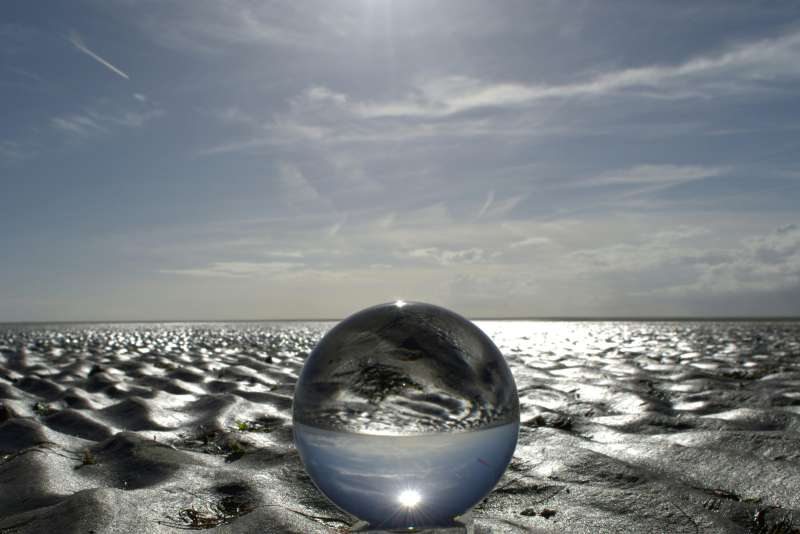Quantum Physics and Time Portals: Is There Science Behind Fiction?
Published on: May 6, 2025
Quantum Physics and Time Portals: Is There Science Behind Fiction?
Time travel and portals to other eras are recurring themes in science fiction, captivating audiences with the tantalizing prospect of journeying to the past or future. But is there any scientific foundation to these imaginative ideas? Quantum physics, the branch of science that explores the behavior of matter and energy at the smallest scales, has introduced concepts so strange and counterintuitive that they often seem to border on fantasy. In this article, we explore whether quantum physics provides any plausible basis for time portals, and how close (or far) science is from turning fiction into reality.
The Fascination with Time Travel in Fiction
From H.G. Wells’ The Time Machine to blockbuster films like Interstellar and Avengers: Endgame, time travel stories have shaped our cultural imagination. These narratives often feature portals—doorways or devices that allow characters to leap across time. But what does science say about the possibility of such phenomena?
Quantum Physics: The Basics
Quantum physics, or quantum mechanics, is the fundamental theory describing the physical properties of nature at atomic and subatomic scales. Unlike classical physics, quantum mechanics reveals a world where particles can exist in multiple states at once (superposition), can be instantly connected across vast distances (entanglement), and where the act of observation can alter reality (the observer effect).
These bizarre features have inspired scientists and science fiction writers alike to ponder whether the quantum world could hold the secret to time travel or portals.
Relativity, Spacetime, and Wormholes
Before diving deeper into quantum mechanics, it’s essential to mention Einstein’s theory of relativity. General relativity describes gravity as the warping of spacetime by mass and energy. This theory allows for certain solutions—like wormholes—that, in theory, could connect distant points in space and time.
A wormhole, or Einstein-Rosen bridge, is a hypothetical tunnel through spacetime. If such a structure could exist and be stabilized, it might allow for instantaneous travel between two points, or even two different times. However, the energy requirements and stability issues make traversable wormholes speculative at best. Quantum physics, however, may offer new perspectives on these ideas.
Quantum Entanglement and Nonlocality
One of the most mysterious phenomena in quantum physics is entanglement. When two particles become entangled, their properties become linked, such that measuring one instantly determines the state of the other, no matter how far apart they are. This “spooky action at a distance,” as Einstein called it, doesn’t transmit information faster than light, but it does challenge our classical understanding of space and time.
Some have speculated that entanglement could be harnessed for communication or even travel across time. However, current scientific consensus holds that entanglement cannot be used to send information to the past or future, nor does it create a portal in the science fiction sense.
Quantum Tunneling: Leaping Through Barriers
Quantum tunneling is another phenomenon where particles can pass through barriers that would be insurmountable in classical physics. In a sense, particles “borrow” energy from the quantum vacuum to appear on the other side of an obstacle. While this effect is essential in processes like nuclear fusion in stars and the operation of modern electronics, it doesn’t open portals through time. Nevertheless, it demonstrates the universe’s underlying strangeness and the ways quantum mechanics defies everyday logic.
Closed Timelike Curves and Quantum Time Travel
Some solutions to Einstein’s equations, like those involving rotating black holes (Kerr black holes) or cosmic strings, suggest the theoretical possibility of closed timelike curves (CTCs)—paths through spacetime that could loop back on themselves, allowing a form of time travel. Quantum physicists have explored how quantum information might behave in the presence of CTCs.
In 2009, physicist David Deutsch proposed a model of quantum mechanics that could allow for self-consistent time travel, where paradoxes like the infamous "grandfather paradox" are avoided because the quantum system can only evolve in ways that are logically consistent. However, these models remain highly speculative and are not supported by experimental evidence.
Paradoxes and the Limits of Time Travel
Time travel, especially to the past, raises profound paradoxes. The grandfather paradox, for instance, asks what would happen if you traveled back in time and prevented your own existence. Quantum physics, with its probabilistic nature, has inspired some to suggest that every quantum event spawns a new universe (the "many-worlds interpretation"), sidestepping paradoxes by branching into alternate timelines.
While intriguing, these ideas remain untested and controversial. There is no experimental evidence for time travel or the existence of time portals, and the laws of physics as we understand them place severe constraints on such phenomena.
Quantum Computing and Simulations of Time Travel
Quantum computers, which leverage the principles of superposition and entanglement, have enabled scientists to simulate aspects of time travel in controlled environments. In 2019, researchers used a quantum computer to simulate the reversal of time for a single electron-like particle. While this does not constitute real time travel, it demonstrates how quantum systems can be manipulated in ways that challenge classical intuition.
These experiments are valuable for testing the boundaries of quantum mechanics and exploring the nature of causality, but they do not provide a practical means for building a time portal.
Is There Any Real Science Behind Time Portals?
At present, the answer is: not really. While quantum physics and general relativity allow for mathematical solutions that resemble time portals or time machines, there is no empirical evidence that such structures exist or can be built. The energy scales and exotic matter required to stabilize wormholes or create CTCs are far beyond current technological capabilities.
Moreover, the universe appears to have built-in mechanisms—like the laws of thermodynamics and causality—that prevent paradoxical situations. Stephen Hawking famously proposed the "chronology protection conjecture," suggesting that the laws of physics prevent time travel on macroscopic scales.
Why Quantum Physics Inspires Science Fiction
Despite the lack of evidence for time portals, quantum physics continues to inspire science fiction because it reveals a universe more mysterious and complex than previously imagined. Concepts like superposition, entanglement, and quantum uncertainty challenge our notions of reality, causality, and time itself.
Science fiction writers extrapolate from these genuine mysteries, imagining what might be possible if we could harness the full power of the quantum world. While these stories may not reflect current scientific reality, they often inspire real-world scientists to push the boundaries of what is known.
The Future of Time Travel Research
Research into the nature of time, spacetime geometry, and quantum gravity continues at the frontiers of physics. Projects like the search for quantum gravity, the study of black holes, and the ongoing development of quantum technologies may one day shed new light on the fundamental structure of the universe.
For now, however, time portals remain the domain of fiction, not fact. The quest to understand time itself is ongoing, and the answers may be even stranger than anything science fiction has imagined.
Conclusion: Science, Speculation, and Imagination
Quantum physics has revolutionized our understanding of the universe, revealing a reality that is far weirder than everyday experience. While it provides tantalizing hints and mathematical possibilities that inspire the idea of time portals, there is currently no scientific evidence or feasible mechanism for traveling through time as depicted in fiction.
Nevertheless, the interplay between science and fiction remains powerful. As quantum research advances, who knows what new discoveries await? For now, time travel remains a captivating mystery—one that bridges the gap between imagination and the ever-expanding frontiers of science.










